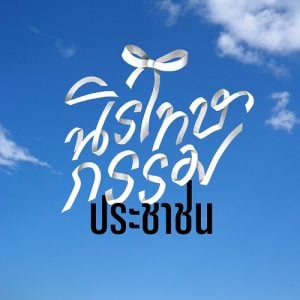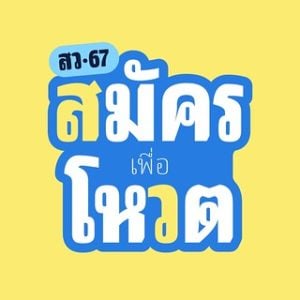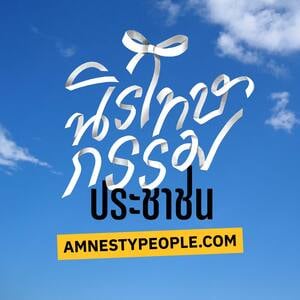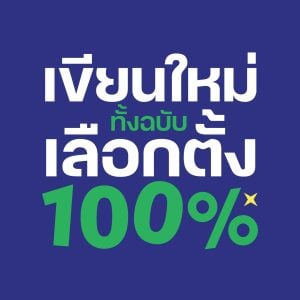เพื่อที่จะสร้างระบบกฎหมายให้สามารถปกป้องคุ้มครองสิ่งแวดล้อมได้อย่างมีประสิทธิภาพ ประชาชนมีส่วนร่วม ลดปัญหาความขัดแย้งระหว่างประชาชน รัฐ และเจ้าของโครงการ นอกจากจะต้องเร่งจัดตั้งองค์กรกลางผ่านการผลักดัน “ร่างพ.ร.บ.องค์การอิสระด้านสุขภาพและสิ่งแวดล้อม พ.ศ…..” แล้ว ภาคประชาชนยังเสนอให้แก้ไข “ร่างพ.ร.บ.แก้ไขพ.ร.บ.ส่งเสริมและรักษาคุณภาพสิ่งแวดล้อมแห่งชาติ พ.ศ.2535” ด้วย
พ.ร.บ.ส่งเสริมและรักษาคุณภาพสิ่งแวดล้อมแห่งชาติ พ.ศ.2535 (พ.ร.บ.สิ่งแวดล้อม) เป็นกฎหมายหลักที่ใช้ในการปกป้องคุ้มครองสิ่งแวดล้อมทั้งประเทศ มีเนื้อหาครอบคลุมทั้งเรื่อง มลพิษ น้ำ ดิน อากาศ เสียง ฯลฯ จัดตั้งองค์กร กรรมการ และระบบการกำกับดูแลเรื่องสิ่งแวดล้อมทั้งหมด
แต่พ.ร.บ.สิ่งแวดล้อมฉบับปัจจุบันถูกวิพากษ์ว่ามีเนื้อหาที่ล้าสมัย ไม่สอดคล้องกับบริบทปัญหาสิ่งแวดล้อมในปัจจุบัน และยังเป็นกฎหมายที่วางระบบการกำกับดูแลสิ่งแวดล้อมโดยมีศูนย์กลางที่รัฐส่วนกลางเท่านั้น ไม่เปิดช่องทางให้เกิดการมีส่วนร่วมจากประชาชนในพื้นที่ องค์กรส่วนท้องถิ่น องค์กรเอกชน หรือนักวิชาการ อีกทั้งบทบัญญัติบางมาตรายังก่อให้เกิดการตีความของผู้บังคับใช้ซึ่งอาจส่งผลเสียต่อสิ่งแวดล้อมและเปิดโอกาสให้เกิดการแสวงหาประโยชน์โดยคนบางกลุ่มได้
จากกรณีที่ภาคประชาชนเคลื่อนไหวระดมรายชื่อเพื่อเสนอ ร่างพ.ร.บ.องค์การอิสระด้านสุขภาพและสิ่งแวดล้อม พ.ศ….. นั้น เพื่อให้กฎหมายที่เกี่ยวข้องกับสิ่งแวดล้อมมีเนื้อหาสอดคล้องกันอย่างเป็นระบบ จึงจำเป็นต้องเสนอแก้ไข พ.ร.บ.สิ่งแวดล้อมไปพร้อมกันด้วย

ภาคประชาชน ภายใต้สมัชชาองค์กรเอกชนด้านการคุ้มครองสิ่งแวดล้อมและทรัพยากรธรรมชาติ และเครือข่ายสิ่งแวดล้อมไทย จึงร่วมกันจัดทำ “ร่าง พ.ร.บ.แก้ไขพ.ร.บ.ส่งเสริมและรักษาคุณภาพสิ่งแวดล้อมแห่งชาติ พ.ศ……” มีหลักการที่น่าสนใจ ดังนี้
สร้างช่องทางให้ประชาชน องค์กรเอกชน ชุมชน และองค์กรปกครองส่วนท้องถิ่น เข้ามามีส่วนร่วมในการจัดการดูแลสิ่งแวดล้อม ได้หลายช่องทาง เช่น
กำหนดเพิ่มให้ “ชุมชน” มีสิทธิ สามารถมีส่วนร่วมดำเนินการต่างๆ ในกฎหมายนี้ได้ จากเดิมที่ให้สิทธิเฉพาะ “บุคคล” เท่านั้น (มาตรา6)
ขยายขอบเขตของ “องค์การเอกชนด้านสิ่งแวดล้อม” ให้รวมถึง “คณะบุคคล” ที่มีกิจกรรมเกี่ยวข้องกับสิ่งแวดล้อมด้วย ไม่จำกัดเฉพาะ “นิติบุคคล” เท่านั้น และยังเพิ่มบทบาทของ “องค์การชุมชนด้านสิ่งแวดล้อม” ให้มีตัวตนในกฎหมายนี้ด้วย (มาตรา7)
เพิ่มอำนาจของคณะกรรมการสิ่งแวดล้อมแห่งชาติ ให้มีหน้าที่ส่งเสริมและสนับสนุนกระบวนการมีส่วนร่วมของประชาชน ชุมชน และองค์การอื่นด้วย (มาตรา14(4))
ให้องค์กรปกครองส่วนท้องถิ่น องค์การเอกชน องค์การชุมชน มีอำนาจเสนอการกำหนดเขตอนุรักษ์ และพื้นที่คุ้มครองสิ่งแวดล้อมต่อรัฐมนตรี และรัฐมนตรีมีหน้าที่จัดให้มีการรับฟังความคิดเห็นประชาชนก่อนออกประกาศด้วย (มาตรา43)
ปรับปรุงระบบสัดส่วนคณะกรรมการต่างๆ ที่จัดตั้งขึ้นตามกฎหมายนี้ ให้มีตัวแทนจากภาคประชาชน องค์การเอกชนด้านสิ่งแวดล้อม องค์การชุมชนด้านสิ่งแวดล้อม องค์กรปกครองส่วนท้องถิ่น ฯลฯ เข้าไปถ่วงดุลกับตัวแทนจากภาครัฐด้วย เช่น
คณะกรรมการสิ่งแวดล้อมแห่งชาติ (มาตรา13)
กรรมการกองทุนสิ่งแวดล้อม (มาตรา25)
คณะกรรมการควบคุมมลพิษ (มาตรา67)
เปลี่ยนระบบการจัดทำ “รายงานการวิเคราะห์ผลกระทบสิ่งแวดล้อม” หรือ EIA ใหม่ เรียกชื่อว่า “การประเมินสิ่งแวดล้อม” โดยแบ่งการประเมินเป็นสองระดับ คือ การประเมินสิ่งแวดล้อมระดับยุทธศาสตร์ เพื่อประกอบการจัดทำนโยบาย แผน แผนงาน และโครงการขนาดใหญ่ กับ การประเมินผลกระทบสิ่งแวดล้อมและสุขภาพระดับโครงการหรือกิจกรรม
เพิ่มอำนาจให้พนักงานควบคุมมลพิษมีอำนาจสั่งเพิกถอนในอนุญาต หรือสั่งระงับกิจการบางส่วนหรือทั้งหมด จนกว่าเจ้าของหรือผู้ครอบครองแหล่งกำเนิดมลพิษจะดำเนินการให้ถูกต้อง เพื่อป้องกันการรั่วไหลของมลพิษออกสู่สิ่งแวดล้อม (มาตรา95)
กรณีที่แหล่งกำเนิดมลพิษก่อให้เกิดความเสียหายแก่ชีวิต ร่างกาย หรือสุขภาพอนามัยของประชาชน กฎหมายนี้กำหนดให้สันนิษฐานไว้ก่อนว่า แหล่งกำเนิดมลพิษเป็นผู้ก่อให้เกิดความเสียหาย ซึ่งหากความจริงไม่ได้เป็นเช่นนั้นเจ้าของแหล่งกำเนิดมลพิษมีหน้าที่ต้องพิสูจน์ให้พ้นผิดเอง แต่ไม่ใช่หน้าที่ของประชาชนผู้ได้รับความเสียหายที่ต้องพิสูจน์ว่าความเสียหายนั้นเกิดจากแหล่งกำเนินมลพิษนั้นหรือไม่ (มาตรา109)
ผู้ที่สนใจร่วมเป็นหนึ่งในหมื่นชื่อเพื่อเสนอร่างพระราชบัญญัติส่งเสริมและรักษาคุณภาพสิ่งแวดล้อมแห่งชาติ พ.ศ…… ฉบับภาคประชาชน มีขั้นตอนดังนี้
1. กรอกข้อมูลในแบบ ข.ก.๑ ตามไฟล์แนบ ให้ครบถ้วน
2. แนบสำเนาบัตรประจำตัวประชาชน พร้อมเซ็นสำเนาถูกต้อง และขีดคร่อมว่า
– เพื่อเสนอร่างพ.ร.บ.ส่งเสริมและรักษาคุณภาพสิ่งแวดล้อมแห่งชาติ พ.ศ….
3. แนบสำเนาทะเบียนบ้าน พร้อมเซ็นรับรองสำเนาถูกต้องและขีดคร่อมว่า
– เพื่อเสนอร่างพ.ร.บ.ส่งเสริมและรักษาคุณภาพสิ่งแวดล้อมแห่งชาติ พ.ศ….
ส่งเอกสารทั้งหมดไปยัง
ตู้ ปณ. 55 ปณฝ.สุทธิสาร กรุงเทพฯ 10321
ไฟล์แนบ
RELATED POSTS
No related posts















